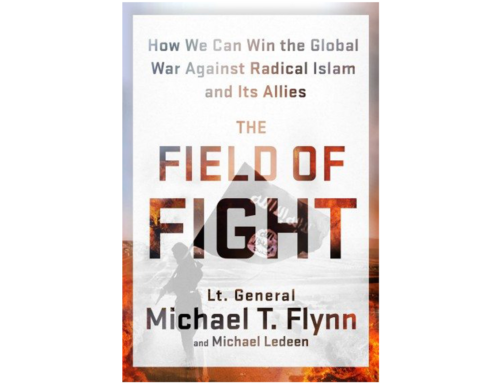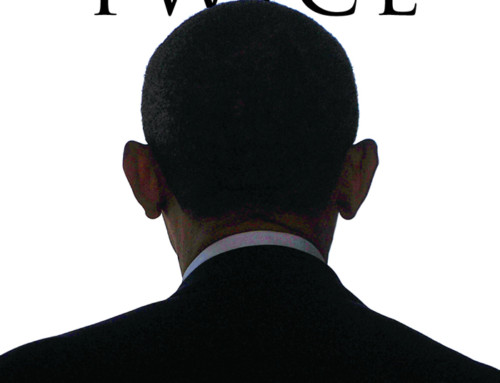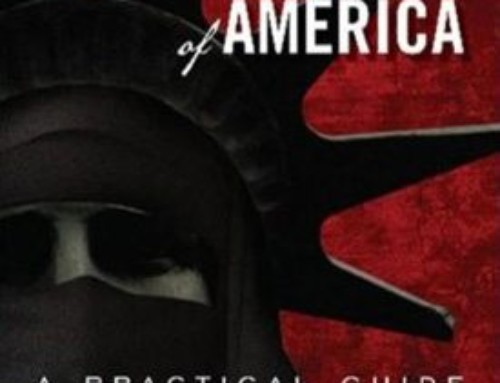It’s pretty clear that, Victor Davis Hanson, is on a roll. Just as communist sympathizers and apologists of the 60s and 70s, together with their press patrons, were successful in making it worse to call someone a communist than it was to be one (never mind the murder of millions), it seems that it has become largely taboo to attack the country’s race industry by anyone other than a member of one of the county’s aggrieved groups. Only people such as Shelby Steele, formerly of the Afro centrists, or Linda Chavez, a potential “twofer” of the Hispanic-American and women’s movements, only those who have gotten fed up with being a card-carrying member of the separatists and race hustlers have been allowed to lodge such a complaint. But remarkably, Peter Collier of Encounter Books convinced Hanson that it is he, a Swedish American, who needed to write Mexifornia, A State of Becoming, a book about our disastrously failed racial politics, because it is he who has earned the authority to do so.
Hanson lives near ground zero for Mexican migration, outside the rural town of Selma in the vast Central California San Joaquin Valley, on a farm founded by his Swedish great-great grandparents in the 1880s. His acreage produces peaches and grapes. In addition to farming, at nearby Fresno State University he teaches gifted students the classics in the original Greek and Latin texts, lectures, and writes essays and books. Despite the remoteness of his local, more and more, he is becoming one of the leading voices among the neocons that are charting the course for the current administration’s foreign policy and its epoch-making war on terror.
His new book is a little dark, as he describes a looming crisis which if not adequately addressed, presages what he calls the multi cultural big bang, certain to occur well before 2050 when California’s massive illegal immigration, its attendant high birth rates, and chain migration, will bring California to house 60 to 70 million souls, over two-thirds of whom will be Hispanic and more importantly, largely unassimilated and consequently disassociated from the American mainstream. Unflinching, and politically incorrect, he gives us a first-hand glimpse of what that landscape will soon look like and who are its authors. It is the depiction of not just the state’s balkanization, but is one where even a recent Mexican immigrant instinctively knows that, if the present trend remains, what will result is the abject reduction of the country’s largest, most populous state to a third-world condition. Hanson relates a conversion with a Mexican-American neighbor who, in a remarkable bit of candid self-deprecation, proclaimed, “If you let us make California into Mexico, we’ll just go to Oregon.”
Americans from other parts of the country might ask, “What’s the problem? Isn’t California a big rich state with lots of room and plenty of money still to be redistributed?” Or, “Hasn’t the country always relied on newcomers to fill the ranks of its unskilled laborers?” Hanson’s book is the answer to why this uncontrolled wave of immigrants from Mexico is different from all the previous immigrations to our shores and why it’s a ticking time bomb.
To see for myself that which he describes in his book, I drove from my home in the San Francisco Bay Area, 200 miles south to Parlier, a little town near Hanson’s farm where no Swedish gringos live anymore, only Hispanics. Like huge tracks of Los Angeles, it is a small pocket of third-world Mexico. Like a northern Tijuana, it is a template for what the author predicts Mexifornia will become. Predictably, at least half the businesses in the town are closed, those that are open display signs in Spanish. The only greenery anywhere is the lawns surrounding the cinder-block housing projects. As Hanson explains, because there is almost no local tax revenue, Central Valley towns like Parlier, Mendota are themselves wards of the State and Federal Governments. The overriding atmosphere is one of a sullen, dejected despair.
As I stood on the sidewalk in Parlier’s hot, dusty, treeless, town center and watched a very dark-skinned woman with her two daughters walk toward me, I noticed that they looked at me as if I were an alien. But my heart went out to that woman and her children, remembering a passage in Mexifornia, “Mexico is a hierarchical society, where skin color, accent, and ancestry determine one’s social place.”
Hanson contends that, despite the fact that virtually all our dinosaur (his term) Chicano studies professors are preaching a dogma that still characterizes the U.S. as a fundamentally racist society, it is Mexico where the Indians and Mestizos are treated as untermenchen and are consequently and uniformly the poorest and the most desperate to leave and in fact are encouraged to do so by a pathologically elitist Mexican culture which cannot afford and does not wish to assimilate them. The privileged by birth are not streaming north. In Mexico, he reports, racism is fully institutionalized.
Just a couple of miles from Parlier, on my way to interview Hanson at his farm, I stopped by Selma, where there is still a plurality of non-Hispanic peoples and just plain folks from around the world, Northern and Southern Europe, Asia, Armenia, and even the Punjab and although the town is small compared to neighboring Fresno, it’s clean, the outskirts bustling with new businesses from fast food, numerous hotel chains, and even a giant auto mall. At Archie’s Place, the city center’s coffee shop, the waitresses know everyone by name. The town was, in a sense, an opposite of Parlier. Everyone appeared to have an air of friendly contentment not to mention a fluency in English.
Just a few miles west of Parlier and Selma, off Highway 99, down a two-lane road, Hanson’s two-story, white Victorian House is an island in a sea of flat farmlands. Tall mature trees and lush gardens add to its look of pre modernism as well as mostly hiding the house and grounds from view. Hanson greeted me at the door, graciously introduced me to his wife, Kara, and invited me to sit down at his living room table. The lights were low; it was a very hot mid day. There was no modern, high-tech, air conditioning in the house. We talked next to a decidedly low-tech but still humming electric fan.
Larry Kelley (LK): I’ve been an ardent admirer of yours since I read a piece you wrote on the nature of war where you stated that the ancients Greeks ceded their empire to Phillip of Macedon (Alexander’s father), despite that, in an earlier age, they defeated invading Persian armies 10 times larger. You made an observation that has uncanny meaning for California and the country now, that being, no civilization has ever survived once its citizenry did not feel its culture was worth saving.
Victor Davis Hanson (VDH): Right. Historians are still baffled about how that happened.
LK: I’ve heard that it took the publisher some convincing to get you to write this book. Why didn’t you want to write it?
VDH: One was a time issue. I’ve been traveling to and lecturing at the Naval Academy on military history and defense issues and I’m also writing a massive book on the Peloponnesian War. And secondly, Mexifornia is (about) an issue you can’t win because first there’s a constituency I call the conservative corporate right that wants open borders, consisting of agribusinesses, meatpackers, and hotels. Then there is the other I call the therapeutic or the racial left which is composed of the media, politicians, and Chicano Studies departments and they both conspire to create this non-policy that most people don’t agree with but nevertheless they’re powerful constituencies. And then you add to that (the fact that) you can’t discuss this issue without someone calling you a racist. I saw nothing on the up side and everything on the down side.
LK: Can you think of a single book that would be a counterpoint to your book?
VDH: There is a counter proposal which is a collection of essays that just came out from a Chicano Studies professor named Suarez something (a hyphenated name). My problem with the opposition is their answer to this whole problem is amnesty. But they don’t tell you it’s a rolling amnesty they want. Amnesty is from a Greek word, which means no memory of. So they want amnesty every five years. Most Americans would say, okay, there’s 12 million illegals here now. Let’s give them citizenship one time if they’re not criminals and are working and then let’s fix the borders. But when you talk to Chicano activists, they don’t want to fix the borders. And there’s this mentality of ingratitude now that doesn’t say I’m here because I’ve always wanted to be an American. Instead, it’s an attitude that says, this is really Mexico.
LK: With respect to our out-of-control migration in this state, how does it affect your judgment of the two political parties and how will it play out politically?
VDH: Well, I’m still a registered Democrat but would not vote for a Democrat for national office simply because I think the party had two critical functions. One was to ensure an equality of opportunity for all races and creeds but has now (that function has) metamorphosized into an equality of result. The other thing is that they were a check on the abuse of capital. In other words, they were the voice that would tell us about an Enron. But the problem now, if you look at the per-capita income of the Democratic elites, Hollywood, the major universities, (etc.) they’ve created lifestyles indistinguishable from the (members of) major corporations. So I don’t see the populism. In fact, the people I know who are struggling whether they be small businessmen or small farmers are all populist conservatives. One of the reasons I didn’t want to write about immigration is because it’s a minefield politically. What I’m trying to see is some honesty. I think the left needs to come out and say, we do not believe in borders anymore. We do not believe in nationhood. We want to create a Mexifornia, a new hybrid culture. And I think the right should come out and say, We really don’t want that. But we don’t care. We’d rather make money and not worry about the social consequences.
LK: Terry Jeffrey wrote a piece for Human Events recently about the capture and arrest of a Tijuana-based restaurant owner who was discovered to be smuggling middle-eastern aliens into California. What do you think would happen if we were to have another 9/11 event and it was determined that the terrorists came into the country this way? And would that qualify as one scenario for what you mean by the coming multicultural big bang?
VDH: All the candidates on the left are for open borders essentially. Their constituencies are the Chicano movement, La Raza, etc. But you can tell that the Bush Administration does not want immigration to be an issue in the next presidential election. They’re trying to triangulate. So if that were to happen the blame would fall very heavily on the current administration because they would be called both inept for not securing our borders when they knew there was a threat and hypocritical for selling us out to big business. Bush is already receiving criticism about his relationship with Mr. Fox because what Vicente Fox told him in the U.S. is not what he says in his speeches in Mexico City.
LK: And that was?
VDH: To us and to Bush he said he wanted to work toward a mutually beneficial relationship. To his own constituency inside Mexico, he said that it was inevitable that there was going to be an open border. And he did that because 55 to 65% of Mexican citizens polled consistently say they believe that California, indeed the American Southwest actually belongs to Mexico and is in the process of being reclaimed through redemography.
LK: Minus a Mexican-assisted terrorist attack what would a multicultural big bank look like?
VDH: When you have vast numbers of people in your university system that do not teach, for example, the Aztecs were cannibals or that they were mass murders…or how Cortez was able to conquer a whole country with 1600 soldiers…or the basic question of why there are two million (Mexican) people a year going northward and not into Central or South America (whole university departments) that don’t believe that there’s an objective standard on which to make value judgments, you have this very insidious and growing number of people here, notables like Susan Sontag or Oliver Stone, people who don’t believe that this country is any different or any better than any other and therefore don’t believe in truth. This goes back to Plato and the Sophists…
To the uninitiated reader from the other California, who likely assumes his California home will continue to appreciate endlessly, it may be that Hanson’s new book makes some disconcerting assertions. As a professor of classics, one steeped in the history of western civilization, he makes a compelling case, which states that allowing California to slip into a hybrid Hispano-American culture is unfortunate because, quite simply, the squalid Mexican culture is inferior to ours. As he puts it, “Our political elites and educational system, through multiculturalism, cultural relativism and a therapeutic curriculum…promote the values that the immigrants are fleeing—tribalism, statism, and group rather than individual interests.” Another example of Mexico’s cultural squalor Hanson cites is the fact that today the United States police and government are not so utterly corrupt that they provide security for the country’s heroin and cocaine cartels.
Secondly, that same reader who likely assumes that the Mexican-American barrios are really nothing new because our country has always contained pockets of slums, soon-to-recover areas, blighted only by new eager Americans of various foreign lands, may again be offended to read that Hanson believes that the present portends that those barrios like Parlier will not go away or recede but will continue to grow exponentially throughout the American Southwest and beyond.
Finally, much of the book will likely offend the politically sensitive reader because the crux of what Hanson is writing about is the fact that with the exceptions are his gifted Latino students, the bulk of the Mexican American population is failing. And the primary reason for that is because Mexican Americans are largely failing the basic test of assimilation.
He names the guilty parties who encourage them to resist assimilation. They are the race industry, its thousands of bureaucrats, minor and major elected government officials who promote affirmative action, bilingual education and government programs, the university Hispanic ed departments, and their media patrons, all of whom have a vested interest in an ever larger unassimilated population of underprivileged Hispanics. The guilty are also the elites of the Mexican government and its upper classes who are all too glad to dispense with their “browner” brethren but need their money sent back to Mexico from those with family left behind. And the guilty are the corporate interests who feel that they won’t be able to compete without an ultra-cheap, illiterate labor pool.
Although the book is not optimistic, I’m still much the Hanson fan because, in the midst of disturbing and seemingly intractable truth, he affords us lots of “Hansonisms,” those scraps of knowledge handed out, that give us a view of own western civilization and history. The book has many. Here’s one:
“California has always been a great, though risky multiracial society, united by a common language, culture and law—something not seen since the creation of the Roman Principate, in which Pax Romana was to give…the Gaul, the Spaniard, and the Thracian alike the Italian notions of government, water via aqueduct, Jevenal’s Satires, and habeus corpus. But that subjugation of race to culture is forever a fragile state, nor a natural condition…Thus, each time a university president, a small-time politician on the make, or bien pensant liberal journalist chooses the easy path of separatism, he does a little part in turning us toward Rwanda or Yugoslavia.”
NOTE: Publication: Human Events — The National Conservative Weekly






